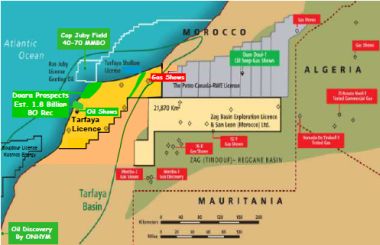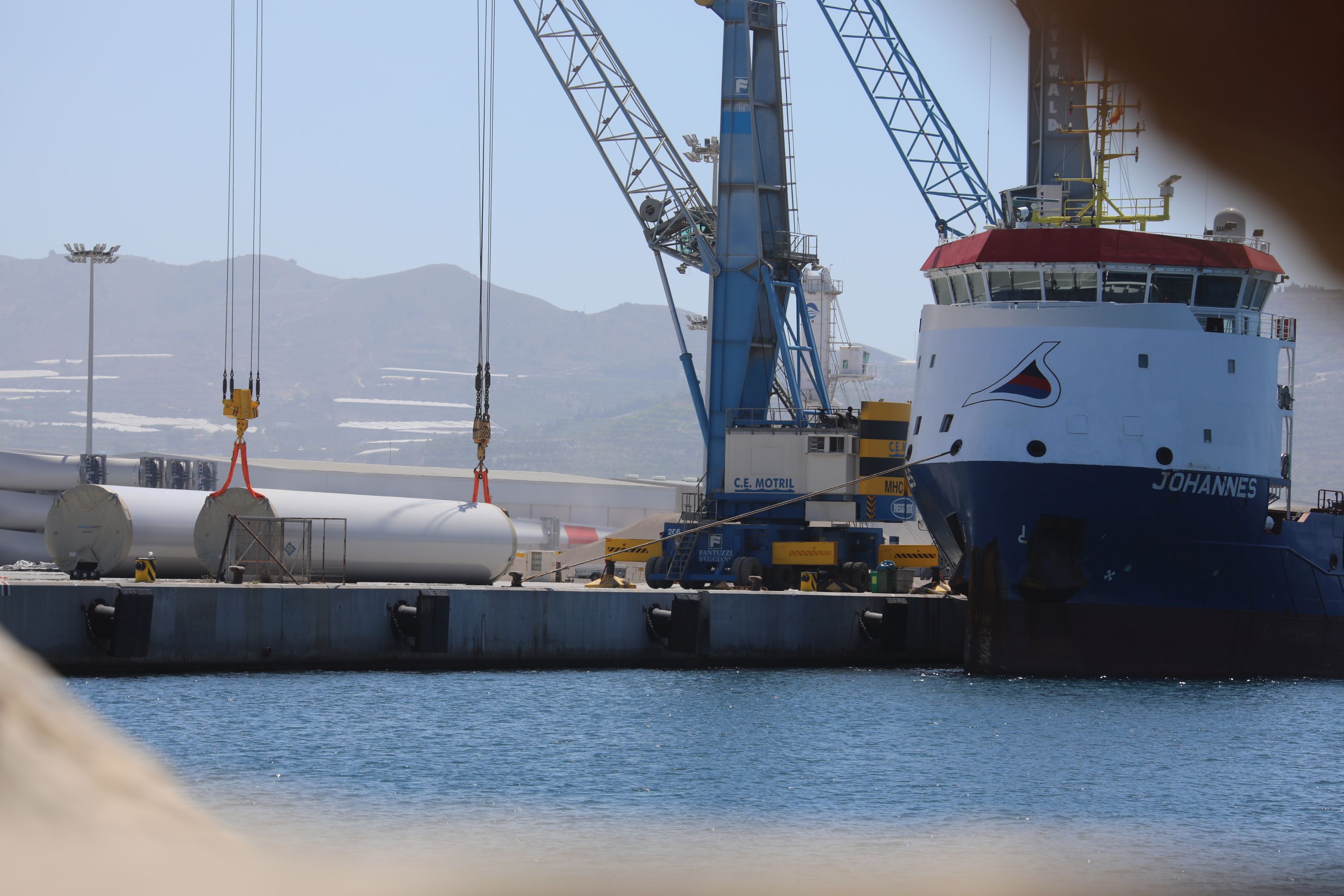Morocco is continuing its oil programme on the Boujdour onshore block. These cars were filmed as they did geological surveys in the occupied territories.
The unique video documents Morocco violating international law. The UN has stated that further oil search in Western Sahara would be illegal unless consent has been obtained from the Saharawi. But they have not given such consent. Most probably, the trucks are seen conducting two-dimensional surveys for the Moroccan state oil company ONHYM, by the Morocco based seismic services firm GeoAtlas. The study is said to have taken place from April to September 2010.
At least since 2006, has ONHYM steadily been advancing their oil search in the socalled ‘Boujdour block’. ONHYM has since 2007 been operator of its own onshore block, a licence which is wholly situated in the occupied territories.
Already in its 2006 annual report, did ONHYM label this specific area as a particularly promising zone for petroleum findings, after traces of oil had been discovered upon drilling for water. Following these first findings, two researchers of Malaysian oil firm Petronas in 2006 carried out an evaluation of the hydrocarbon potential in the area.
Then, in 2008, a Moroccan newspaper started a rumour that ONHYM had struck oil in Boujdour. ONHYM immediately after denied the claim in the newspaper Aujourd’hui le Maroc. ONHYM director Amina Benkhadra stated that they needed to do far more studies before they could “cry victory”. She said that further geological, geophysical and well work was programmed within a 2008-2012 framework, to “get a better knowledge of the parameters of the geological formations”, she stated.
Mrs. Benkhadra underlined that a 2D seismic study was carried out onshore Boujdour between 15 September and 26 November 2007, and that “these works had been carried out under very good conditions”.

And the work proceeded. From 2008, a dozen of tenders that Morocco opened for drilling. Some of the tenders cover supplies of equipment necessary for setting up the drilling equipment, petrol etc.
From the tender process, it seems that they have first developed the well “BJD 1”, in proximity of the Boujdour city, proceeding to ”BJD 2” at an unknown location. For the BJD 1 well, ONHYM in December 2009 opened a tender to hire a firm for mud logging of the well. Mud loggers are specialized in making detailed records of a borehole by examining the bits of rock or sediment brought to the surface as the well is drilled. ONHYM guaranteed that they would provide security around the well area, while the mud loggers would monitor the sediments.
In a 2008 ONHYM report it is stated that one well had been made. The exact location is not known, since no wells are yet located within the Boujdour block on the hydrocarbon map on ONHYM’s webpages.
Summer/autumn of 2010 saw more activity on the block. Not only the video-documented seismic survey trucks, but also vehicles belonging to the French firm GeoSpec were observed in Boujdour, carrying what appears to be drilling equipment. See photo above and below.

The state firm budgeted necessary “consumables” for the establishing of wells “BJD 1” and “BJD 2”. This would be petrol, cement etc.
A map from the UK oil firm Longreach contributes to the speculations. “Oil discovery by ONHYM”, Longreach notes coldly on the Boujdour block (see far left corner of photo to the right). No such report of an oil discovery has been mentioned by ONHYM themselves.
Also a 2007 Longreach report which the firm has never themselves published, refers to a ”Hydrocarbon potential […] has been confirmed by […] the Boujdour well in the southern onshore basin”.





Greenland Yes, Western Sahara No? The EU’s self-determination test
As the European Union rightly rallies behind Greenlanders’ right to decide their own future in the face of external pressure, a test of the EU’s real commitment to self-determination is quietly unfolding in Brussels.
New report: Certified occupation
International certification standards embellish Morocco’s controversial trade with fisheries and agricultural products in occupied Western Sahara, new report documents.
Certification giant SGS points fingers elsewhere
SGS blames everyone else for mistakes on MarinTrust certificates it had issued to Moroccan companies in occupied Western Sahara.
New report: Greenwashing Occupation
Out now: WSRW today publishes a new report outlining the massive - and deeply problematic - renewable energy projects that Morocco is developing in occupied Western Sahara.



